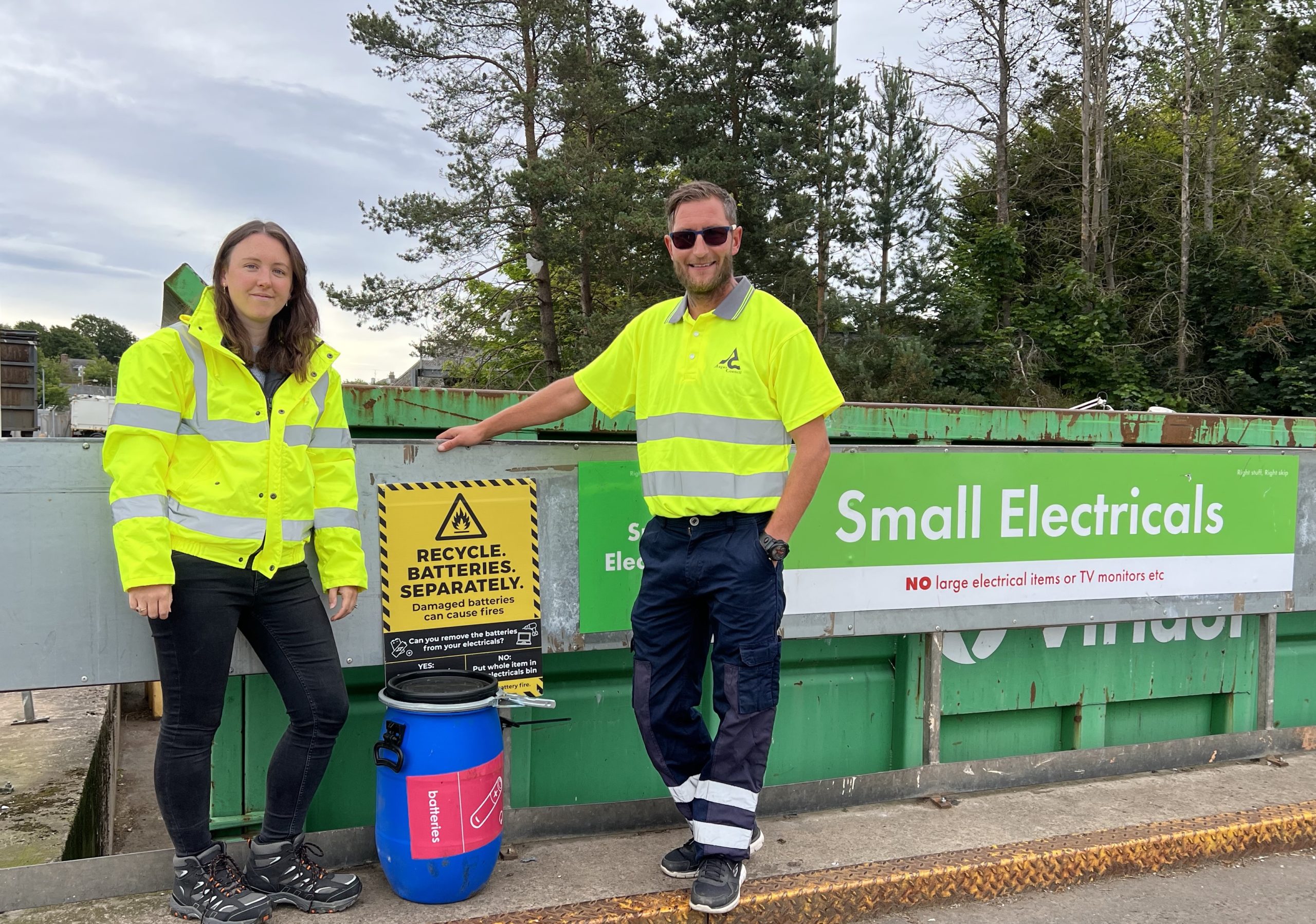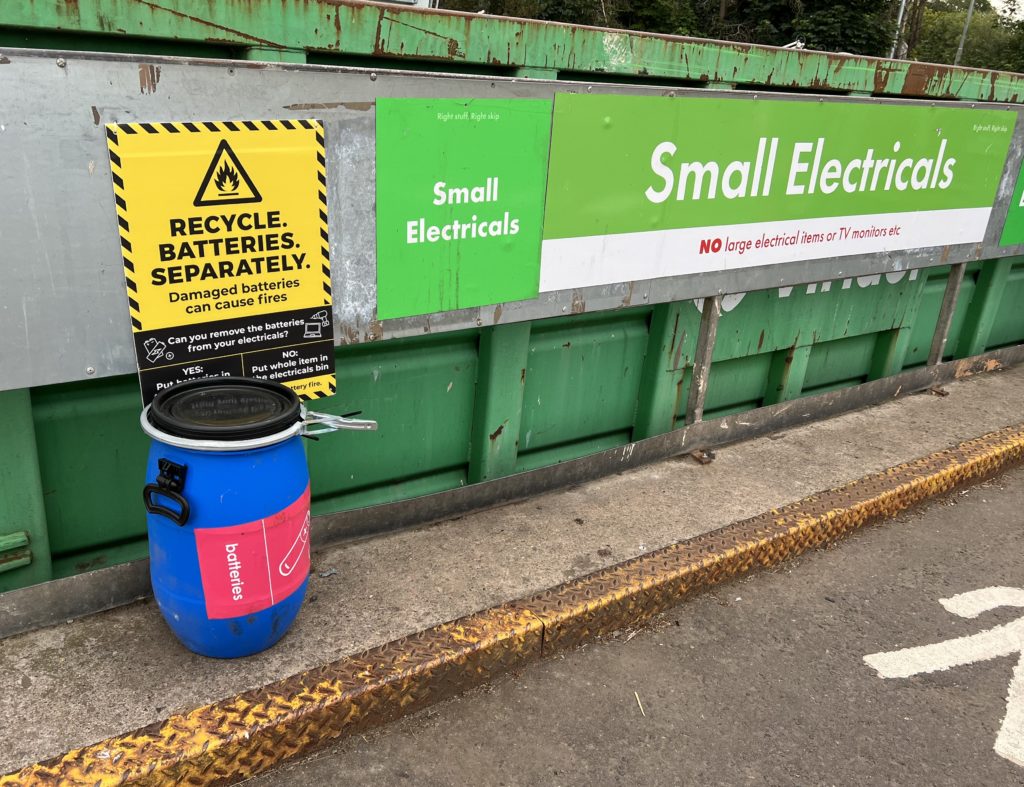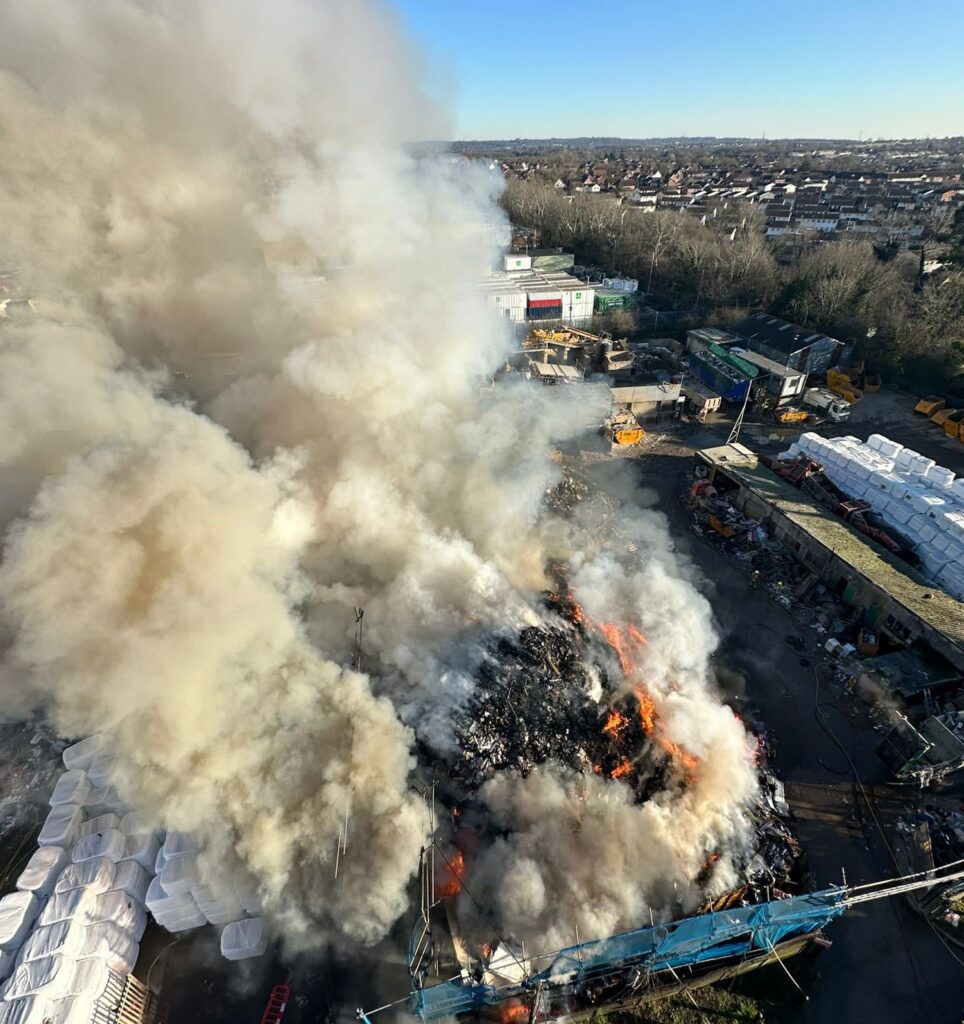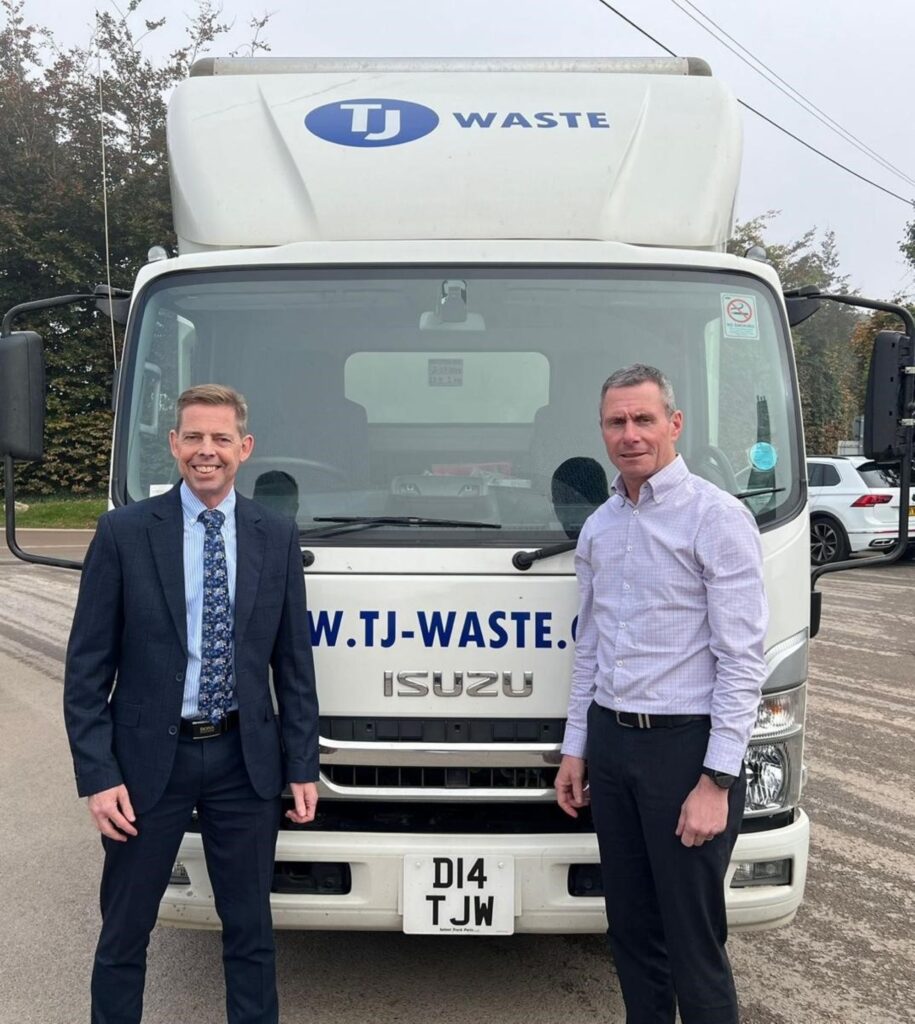REPIC’s campaign instructs the public to separate batteries from their electrical appliances prior to discarding them at an HWRC.
Doing so reduces the chances of discarded batteries entering waste electrical and electronic equipment (WEEE) treatment processing lines, the compliance scheme says.
The initiative, which REPIC launched at the Arbroath HWRC in Angus, will see battery collection drums and safety message posters installed at almost 400 local authority HWRCs with which REPIC is partners.
The drums will be in addition to the battery collection points currently in use at the HWRCs. REPIC says this doubles the opportunity to capture used batteries.
Graeme Milne, strategic business development director at REPIC, said there was an “increasing number” of fires at UK waste plants, estimated to be around 300 a year.
He added: “Encouraging the removal of batteries from unwanted and broken electrical appliances, ideally prior to them coming through the gates of the HWRC or otherwise when the electrical appliances are discarded, could help mitigate any fire risk associated with discarded batteries.”
The roll-out of the drums and the posters began on 13 June.
‘Sector-wide concern’
REPIC says development of the initiative involved “collaboration” with “key logistics partners” and Material Focus, the not-for-profit organisation funded by the WEEE compliance fee.

REPIC says its initiative will look to tackle a “sector-wide concern”. Yesterday (4 July), the British Metals Recycling Association published an open letter to its members warning of “an increasing number of fires”, many of which are caused by lithium-ion batteries or WEEE containing batteries (see letsrecycle.com story).
LARAC, the organisation which represents local authority recycling officers, said in late June that there had been a “significant increase” in the numbers of refuse collection vehicle and HWRC fires reportedly caused by crushed batteries in the waste stream.
Material Focus anonymously surveyed local authorities about battery fires in June ahead of launching a campaign to increase public awareness of the dangers of binning batteries and electricals.
Discarded batteries
Explaining the hazards, Mr Milne said: “A fire risk can occur if discarded batteries in mixed waste are damaged during transport or processing.
“This risk is significantly reduced when discarded batteries are collected and processed separately.
“With new clear signage at the point of disposal, and a collaborative approach with our key partners, REPIC hopes the public will support the campaign and recycle their batteries separately.”









Subscribe for free